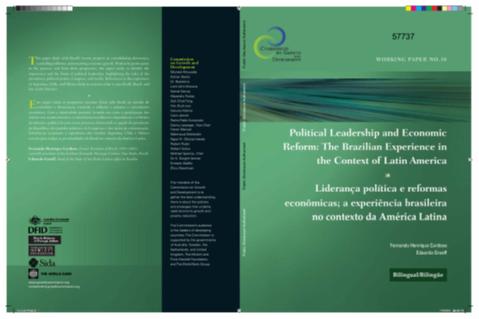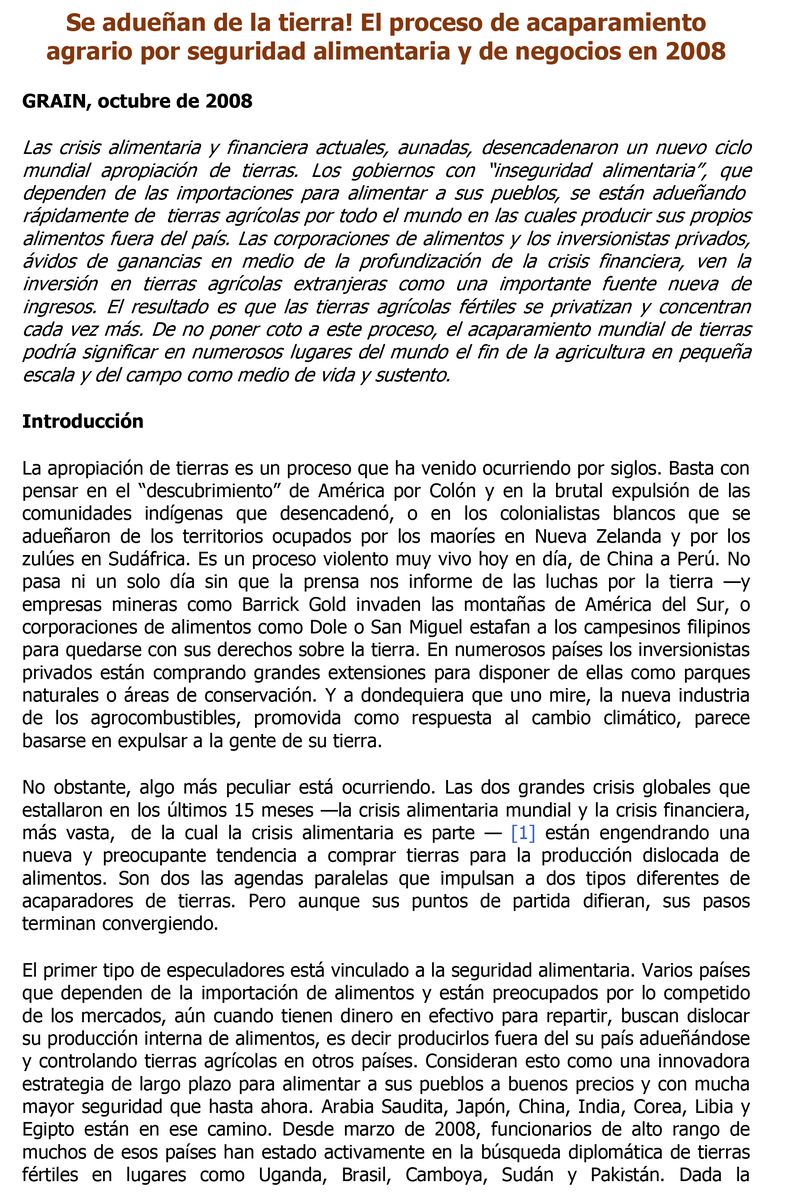The Land Matrix is an independent land monitoring initiative that promotes transparency and accountability around large-scale land acquisitions (LSLAs) in low- and middle-income countries across the world. By capturing data on its website, the initiative aims to stimulate debate on the trends…
The Land Matrix is an independent land monitoring initiative that promotes transparency and accountability around large-scale land acquisitions (LSLAs) in low- and middle-income countries across the world. By capturing data on its website, the initiative aims to stimulate debate on the trends…
The current global recession is leading to millions of job losses around the world, pushing some people deeper into poverty and nudging others into poverty for the first time. How can governments and others in developing countries create good jobs to fight poverty and hunger both now and in the…
The Latin America and Caribbean (LAC) region is host to some of the most difficult environments in the world, either because of altitude, climate, or topography, or because of huge inequalities in the distribution of land (the bottom 60 percent of landowners—those with the smallest landholdings—…
This perspective document: 1 Provides examples of ‘no regrets’ approaches, applied in small island countries to cope with current climate variability and adapt to future climate change, at different levels ranging from communities, local administrations and national governments. 2 Demonstrates…
Conflicts associated with natural resources are twice as likely to relapse into conflict in the first five years, an imminent report suggests. Indeed the natural resource curse has been a primary determinant of intra-state conflict in terrible theatres of war such as the Democratic Republic of…
ASOCAM conducted the XII ASOCAM Latin American Seminar 2009 in the district of Yucay in Cusco, Peru on ‘How to promote adaptation to climate change on water management in rural areas?’ The seminar brought together 40 participants from 8 countries submitted their institutional experiences…
Brazil grew 2.4 percent per year on average in the last 25 years-somewhat less than Latin America, a good deal less than the world, far less than the emerging countries of Asia in the same period, and indeed far less than Brazil itself in previous decades. If anything stands out favorably in…
Brazil grew 2.4 percent per year on average in the last 25 years-somewhat less than Latin America, a good deal less than the world, far less than the emerging countries of Asia in the same period, and indeed far less than Brazil itself in previous decades. If anything stands out favorably in…
Aproximadamente 1,6 mil millones de personas –más del 25 por ciento de la población mundial – dependen de los recursos forestales para la consecución de los medios de vida y la mayor parte de ellos (1,2 mil millones) utiliza los árboles en las explotaciones agrícolas para generar alimentos y…
¿Nuevo ciclo de reformas agrarias en América Latina?
Miguel Urioste[*]
14 de noviembre de 2008
La emergencia de gobiernos progresistas en Latino América, unos más que otros, ha colocado nuevamente en agenda el tema de la reforma agraria como una tarea pendiente y requisito…
Juntas, las crisis alimentaria y financiera actuales dispararon un nuevo ciclo mundial de apropiación de tierras. Los gobiernos con “inseguridad alimentaria”, que dependen de importaciones para alimentar a su población, están arrebatando tierras agrícolas fuera de su país en las que pretenden…






